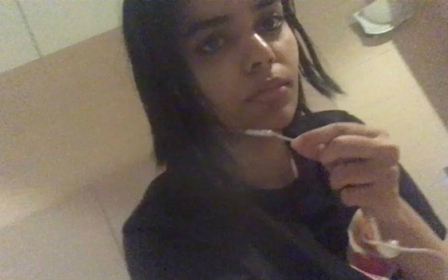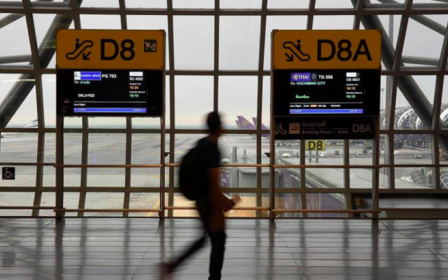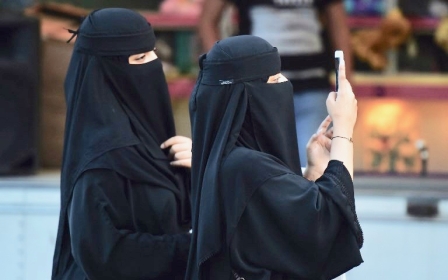UN refers Saudi teenager to Australia for refugee resettlement
The United Nations has asked Australia to consider refugee resettlement for an 18-year-old Saudi woman who fled to Thailand at the weekend saying she feared her family would kill her, the Australian government has said.
"The UNHCR has referred Ms Rahaf Mohammed al-Qunun to Australia for consideration for refugee resettlement," Australia's Department of Homeland Security said in an email on Wednesday.
The department said it would consider the referral "in the usual way, as it does with all UNHCR referrals". It declined to comment further.
The UNHCR office in Thailand also declined to comment.
If she is found to be a refugee, then we will give very, very, very serious consideration to a humanitarian visa
- Australia Health Minister Greg Hunt
Qunun was stopped by authorities at Bangkok's main airport as she arrived on a flight from Kuwait at the weekend after running away from her family, who she says subjected her to physical and psychological abuse.
Thailand initially said it would deport her at the request of Saudi embassy officials, barring her from travelling on to Australia where Qunun said she had intended to claim asylum.
But armed with a phone, she barricaded herself into an airside hotel room and fought back, live-tweeting her fears of deportation in a campaign that swiftly galvanised international support and prompted a sharp U-turn by Thai officials.
Qunun is now in the care of the UN's refugee agency in Bangkok, which is processing her case.
Australian officials have strongly hinted that Qunun's request will be accepted.
"If she is found to be a refugee, then we will give very, very, very serious consideration to a humanitarian visa," Health Minister Greg Hunt had said before the UN request was made public.
It comes at a time when Riyadh is facing unusually intense scrutiny from its Western allies over the killing of journalist Jamal Khashoggi at the Saudi consulate in Istanbul in October and over the humanitarian consequences of its war in Yemen.
More than 100,000 Twitter followers
Qunun's desperate tweets ricocheted across social media with the #SaveRahaf hashtag drawing an outpouring of support but also the bile of some hardliners in her native country.
She only joined the social media site at the start of this month but has quickly racked up more than 100,000 followers.
Phil Robertson of Human Rights Watch said Qunun had renounced Islam, which puts her at "serious risk" of prosecution in Saudi Arabia.
Her father and brother arrived in Bangkok on Tuesday, but Qunun "refused to see" them, according to Thai immigration police chief Surachate Hakparn, who has been caught up in the international firestorm since Qunun's arrival.
He said the family's patriarch had met with UNHCR on Wednesday morning and will return to "her country" later today.
"Her father is relieved that she is safe," Surachate said, adding that the "UNHCR will find a third country that will accept her in two days".
A UNHCR representative told the AFP news agency that "the process is still ongoing".
On Sunday, Qunun told AFP her family was "abusive" and once locked her in a room for six months just for cutting her hair.
Fleeing them while travelling in Kuwait throws her into conflict of Saudi Arabia's "guardianship" system, which allows male family members to make decisions on behalf of female relatives, she said.
That makes it "100 percent" certain she will be killed by her family if she is returned to Saudi, she added.
Footage released by Thai immigration shows Abdulilah al-Shouaibi, Saudi embassy charge d'affaires in Bangkok, complaining in a meeting on Tuesday with Surachate that Qunun's smartphone should have been confiscated.
"When she arrived, she opened a new [Twitter] account and her followers grew to 45,000 in one day," he said in Arabic.
Middle East Eye propose une couverture et une analyse indépendantes et incomparables du Moyen-Orient, de l’Afrique du Nord et d’autres régions du monde. Pour en savoir plus sur la reprise de ce contenu et les frais qui s’appliquent, veuillez remplir ce formulaire [en anglais]. Pour en savoir plus sur MEE, cliquez ici [en anglais].




